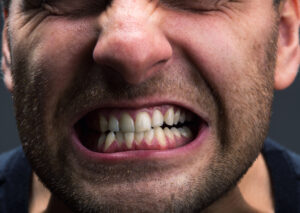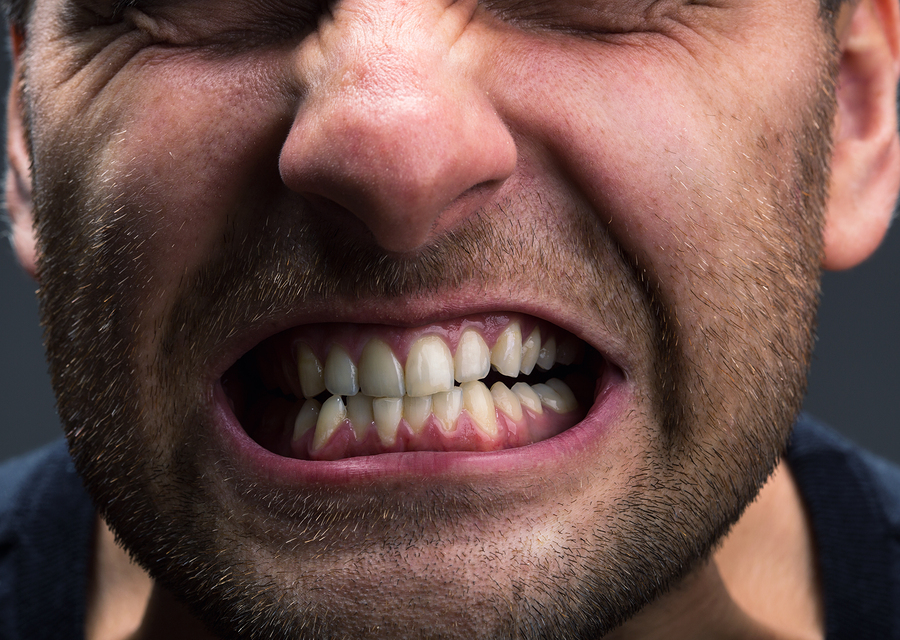 One of the least talked about disorders that people can face in relation to their dental health is bruxism. Yet, this issue — which most people have never even heard of before — can cause lasting damage even to very healthy teeth.
One of the least talked about disorders that people can face in relation to their dental health is bruxism. Yet, this issue — which most people have never even heard of before — can cause lasting damage even to very healthy teeth.
Bruxism is characterized by unconscious or semi-conscious grinding of the teeth. The muscles of the jaw might be extremely tight and become clenched. Bruxism can be expressed at any time during the day or night, including when the sufferer is asleep.
At first, bruxism may have very little impact on the teeth. Over time, however, both the teeth and the jaws will begin to suffer from the consequences of this issue. Even teeth without usual dental caries (“cavities”) can develop cracks, fractures, and holes.
In some cases, people do not even know they have bruxism until they start to notice changes to the surface of the teeth. This can be particularly perplexing if someone is very proactive about their dental health, brushes regularly, and yet still has issues.
As bruxism progresses, it can cause pain in the jaw and damage to the muscles. The force exerted by your mouth is so potent it can even break crowns, fillings, and other dental health aids that are meant to last for a lifetime.
Signs Of Bruxism You Should Be Aware Of
If you have waking bruxism, then you are probably aware of your teeth grinding. Researchers have demonstrated that there may be some correlation between waking bruxism and stress. Waking bruxism is more likely to occur in females than males.
Sleeping bruxism, however, can be much more challenging to track down:
— Sleeping bruxism may be hereditary, so find out if there is evidence of it in your family.
— Sleeping bruxism often produces loud noises that a bedroom partner may be able to hear.
— Sleeping bruxism causes significant pain just after waking, which gradually improves.
If You May Have Bruxism, Get An Expert Opinion
If you have noticed unusual pain or any changes in the surface of your teeth, then you should see a dentist right away. A dentist will be able to mitigate damage and may make recommendations that will reduce sleeping bruxism.
To overcome bruxism, call or email us at Island Dental Associates. We have been trusted by thousands from around Long Island for cosmetic dentistry, oral surgery, implants, and much more.




